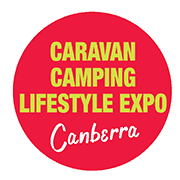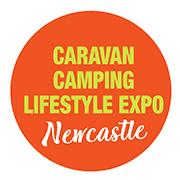Buyers Considerations
When buying an RV, you should ask yourself some questions and consider a range of options before choosing your dream RV for your next adventure.
What Type of Recreational Vehicle?
Don’t just think about the first trip, plan ahead a couple of years. Will it be mainly used for weekend escapes to a favorite getaway destination? Is it for family holidays with the kids? Is it for the fulfillment of a lifelong dream – the trip around Australia that may take months or even years to complete? Or have you perhaps decided to adopt an itinerant lifestyle and make it your only home?
The purpose will determine your type of caravan or RV, its size and configuration, its layout and the extent of its fittings. The amount of travel will determine how important features such as independent rear suspension, off-road capability and the level of comfort are to you.
With all the types of caravans, motorhomes and camper trailers manufactured in Australia only a small portion of these manufacturers warrant their products for proper off-road use. Features of off-road RV’s include:
- Withstanding knocks and bumps
- Chassis designed for off-road conditions
- Steel components treated to prevent corrosion
- Stronger framework built from timber, galvanised steel or aluminium
- Heavy duty suspension systems
- The caravan or RV is raised slightly higher from the ground than on-road models
- Chequered plates fitted for added protection
- Places included for spares such as wheels, water tanks and extra gas and jerry can holders
- Energy efficient features included for travelling to remote areas
- Must have off road coupling (non ball type)
Think about how many people will be travelling with you:
- Are you a family either growing or reducing?
- Will you be taking the grand kids or friends?
- What basic home comforts do you require?
- Do you want private facilities such as a toilet & shower?
- What do you require in a kitchen?
- Is there enough storage?
- Will you require an awning or annexe to provide extra space?
- Is the ceiling high enough for you?
- Will you need to set up and dismantle sleeping area each day?
In general you will need to consider what “essentials” you will take with you and how much space you will need.
Consider where you will store your purchase when not in use. Do you have a carport or space in your garage? What is the height and width of this space and in particular will a caravan or RV fit through the entrance? It is recommended that your RV not be parked on the street or footpath for security reasons and in many areas placing vehicles and other items on the footpath / nature strip you may incur a fine from the Council as it is illegal.
New caravans or RV’s offer all the benefits, safety features and comforts of recent design advancements, including independent rear suspension and durable, lightweight construction material. Buying new also allows you the choice to ‘custom-build’ the layout for your needs and desires.
A pre-loved caravan or RV is less expensive, but be aware and check for wear, mould, leaks and the mechanics. If you choose to buy a used caravan or RV always buy from a licenced dealer. Licenced dealers do many exhaustive checks to ensure that the units they are selling are in fact not stolen (and often re-identified) or encumbered (i.e. they don’t have any money owing on them).
If you’ve never towed a caravan, trailer or driven a motorhome, the time to find out your comfort level is before you buy. Find a dealer who rents out the type you’re interested in and take one for a weekend trip. You should plan a trip that is easy and the caravan park or camp ground is available.
Recreational Vehicle Checklist
Ensure the product meets all Australian Standards and Australian Design Rules. This will ensure you don’t have any problems registering your vehicle or making insurance claims in the event of an incident or accident.
The quality of the chassis and springs, in both materials and construction, are critical to the longevity of your caravan or RV’s life. Ensure they are designed and built for roads you intend to travel on.
Seals in good condition will help prevent water and dust from entering your unit and will save you a lot of cleaning time.
Ensure all tyres including those on the vehicle, caravan, trailer and RV tyres are of good quality and in good condition. Rims need to be compliant for weight of the vehicle.
Awnings allow for more living space, shelter and with walls added can provide protection from the sun, wind and rain and provide a great deal of added comfort when travelling. It is important to consider that you have the right quality canvas for the purpose of its use, for example roofs require heavier duty canvas than walls. Remember, the extra weight awnings and annexes can add to your caravan, RV or tent.
A range of mattress types may be included. Inner spring mattresses are often more expensive than foam mattresses, however, last longer and often provide more comfort. Whichever mattress you prefer, ensure the travel cover of your camper trailer is deep enough to accommodate it.
A huge range of optional add-ons can be included when purchasing your caravan and RV, or fitted afterwards. It is important to keep track of the extra weight of all of the add-ons as this can affect longevity and safety. Add-on’s can include, but are not limited to: stone guards to protect your caravan or RV from the damage from rocks & stones being flicked up when driving; tool boxes (ensure not to exceed manufacturers’ weight specifications); boat/roof/bike racks; electric brakes; storage boxes; solar panels, etc.
Caravans and RV’s are full of ingenious designs to make the most of the limited storage space available. It is worth ensuring you are able to secure everything down when you are on the road to prevent damage should an object become free.
There are three main layouts within caravans and RV’s which are most commonly used to help distribute weight evenly. Layouts include – rear kitchen with front bed; rear bed with front kitchen; mid kitchen with either front or rear bed.
Don’t forget to look at and understand the differences and advantages of other design aspects of your RV including:
- Windows, doors, floors and walls: It may be worth considering when looking at windows whether they are tinted or not and if they can be locked. Tinted windows reduce heat, glare and UV rays while windows with locks increase security and reduce insurance premiums. Good doors will reduce the transfer of cooking fumes and steam throughout your unit and will also add extra security, while easy to clean floors and walls may save you many hours of cleaning when trying to enjoy your holiday.
- Bathrooms and toilets: Ensure that bathrooms and toilets are covered with appropriate material which will prevent any water damage from occurring. Appropriate materials to prevent water damage include ceramic tiles, vinyl tiles, lino or entire fibre glass bathroom units.
Some of the safety features worth considering when purchasing your caravan may include, but are not limited to: smoke detectors, over pressure relief valves on gas cylinders, fire extinguisher, fire blankets, residual current device – also known as an earth leakage detector, gas leakage detector, water purifying filter, security locks on doors, window locks, a jack, spare tyres and tyre changing accessories.
Make sure to read all the Warranty terms and conditions for your RV. If you have any questions, ask your dealer to clarify their terms and conditions.
Services can include gas compliance, gas and refrigeration repairs and service, full services and insurance/warranty repairs.There are a number of providers who offer servicing and repairs. All businesses listed are members of the Caravan & Camping Industry Association of NSW and are required to comply with the Association’s strict Code of Ethics and maintain a repairer’s licence.
Need a little capital to hit your stride on the open road in a camper, motorhome or caravan?
Perhaps some specialist RV finance can help. We explain some of the different types of loans available to help financing the purchase of your dream RV.
Other Considerations
If you are going to purchase a trailer or caravan, it is critical that you give careful consideration to your vehicle’s towing mass and construction prior to making your purchase.
You will find the towing mass (or towing rating) under the towing section in the vehicle manufacturer’s handbook. The rating will include a trailer weight capacity and a trailer ball weight capacity, both of which must not be exceeded. If the manufacturer has not stipulated a recommended tow mass, then the vehicle may tow one and a half times its unladen mass if the trailer has brakes.
More information
Depending on the weight and size of your motorhome you may be required to obtain either a light rigid or medium rigid drivers licence. You are not required to hold a special drivers licence to tow camper trailers, tent trailers or caravans however you may find participating in a towing course an invaluable experience.
Consider enrolling in a Towing Course to learn about safe towing and discover some inside tips & tricks.
Whether your caravan, campervan, motorhome or camper trailer is travelling on the road or onsite at a Caravan Park, it’s important that you have adequate insurance so that in case of an accident you are covered for any financial burdens.
Insurance packages can include cover against accidental damage, theft, fire, storm, vandalism and more.
You should choose your policy wisely so when shopping around for an insurer, consider the following:
- Is the policy premium competitive?
- Is the policy an Agreed Value or Market Value policy?
- Does the policy include the annexe and accessories such as air conditioners?
- Does the policy cover personal contents?
- Does the policy cover emergency accommodation and urgent repairs to the vehicle?
- Is flood cover included?
- Are there any charges that may be levied after repairs have been completed?
Caravan Park/National Park/Recreation Areas
- Follow the park rules.
- Say hello to your neighbours and consider others at all times.
- Don’t walk through anybody else’s site.
- Make sure your pet is under control. Not everyone is an animal lover. Also, make sure that pets are allowed in the park.
- Park your vehicles on your own site or designated parking area.
- Toilet waste to be disposed of in designated dump stations or toilets.
- Wash down a dump station with the hose provided after emptying your holding tanks.
- Use a sullage hose for grey water.
- Use the allocated entertainment and activities areas especially children.
- Keep noise levels down particularly before 8am and after 10pm. This applies to music, generators and loud TV sets.
- Light campfires if allowed only in designated area; never leave unattended; extinguish thoroughly.
- Remove all rubbish from your site when you leave and ensure the site is as clean as or cleaner than when you arrived.
- Care for the environment and protect trees, shrubs and other natural surrounds.
Driving
- It is essential that you remain aware at all times of the fact that you are towing or driving a significant weight.
- Check rear vision mirrors frequently.
- Keep within the legal towing speed limit
- Drive in the left hand lane except when passing and allow extra room when overtaking.
- When travelling in convoy, leave enough room for other vehicles to pass one van at a time.
- Pull off the road periodically to allow other cars to pass.
- On gravel and narrow roads, pull off the road and stop to allow large trucks to pass.
- Acknowledge fellow caravanners and RV drivers as you pass them on the road.
An overloaded vehicle carries huge risk not only in terms of fines and penalties, but can also damage your vehicle’s mechanical systems (such as breaks, suspensions, axles, tyres, etc). The easiest way to measure your vehicle weight accurately is by visiting your nearest licensed public weigh bridge.



